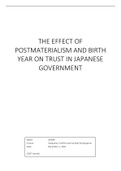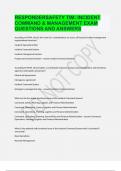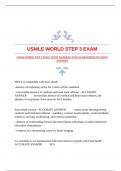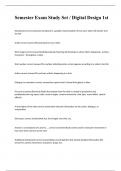POSTMATERIALISM AND BIRTH
YEAR ON TRUST IN JAPANESE
GOVERNMENT
Name: Jelle99
Course: Inequality, Conflict and Societal Participation
Date: December 1, 2021
(2267 words)
, 1. Introduction
The 2021 Edelman Trust Barometer shows that Japanese people's trust in their government
has declined over the past year. Only 37 per cent of Japanese still trust the government, which
can be seen as institutional trust. This is a drop of six percentage points compared to January
2020 (Edelman Japan, 2021).
This decline will undoubtedly be related to the outbreak of COVID-19. This paper will
look at Inglehart's (1997) theory of value change. In doing so, it will look at the differences in
institutional trust between birth year and between the degree of postmaterialist values. Using
Inglehart's (1997) theory, I will formulate two hypotheses. Next, these hypotheses will be
tested through regression analysis. A conclusion will then be drawn based on the results. The
hypotheses will be tested on a sample of the Japanese population.
The country that lies in the Pacific Ocean is ranked twenty-first (out of 167) in terms
of the degree of advanced democracy, according to the Global Democracy Index 2020 (The
Economist, 2021). Looking at the economic situation in Japan, it appears that in 2015 there
was a GDP per capita of $34,960. This is comparable to countries like Israel ($35,813) and
France ($36,638) (The World Bank, n.d.). Looking beyond the economy, Japan was found to
rank 19th in the Human Development Index. Japan particularly excels in the expected life
span of its population, which at 84.6 years is the highest of any country after Hong Kong
(Human Development Report Office, 2020).
1






